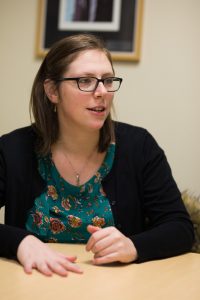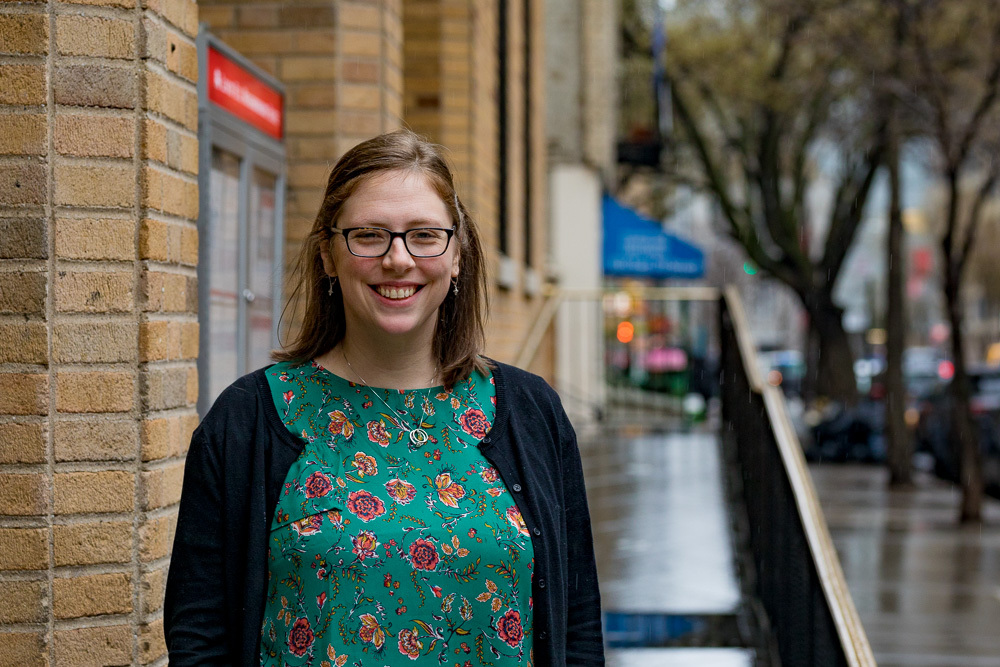When Alison Yoder ’06 Kelley and her husband moved for the second time to accommodate their growing family, she knew full well, she said, that “we got super lucky.”
Their new landlords had also lived in Germany, near where Kelley had grown up. Their kids had even gone to the same school that she attended there.
“We had that instant connection,” she said. “They were very supportive of having a young family move in.”
That kind of affirming relationship between tenants and landlords “is not how it often goes,” Kelley said, something she’d learned in her years as a housing attorney hearing about and seeing broken plumbing, pest infestations, mold and mildew, water leaks and many other problems that can happen in a New York City apartment.

Kelley works for Lenox Hill Neighborhood House, a 124-year-old nonprofit on the east side of Manhattan that provides an extensive array of services, including legal advice. The organization is funded by city, state and federal government agencies and private donors. She manages a load of approximately 30 cases, helping tenants challenge their eviction notices by negotiating in and out of court with landlords’ attorneys.
There is no shortage of work. A plan announced in February 2017 by Mayor Bill de Blasio provides low-income tenants facing eviction with free legal counsel and representation. The first law of its kind in the nation, “right to counsel” services will be phased in by zip code over the next five years.
It’s actually a money saver for the city to provide the services, Kelley said. “The city has found it less expensive to help people stay in their homes than to pay to house them in shelters if they are evicted.”
The program has been a game-changer. In the past, landlords were represented by attorneys in housing court, while tenants had no representation or represented themselves, which usually meant that the landlord won the argument, Kelley said.
But now, with representation, tenants have a fighting chance in the court system — a new dynamic that many landlords’ attorneys don’t appreciate even though dealing with an attorney might be more comfortable than working with a tenant. After all, attorneys who know the rights of their clients and can advocate on their behalf can lengthen and complicate the process.
As a social work student at EMU, Kelley interned with Blue Ridge Legal Services, which piqued her interest in legal issues: “Social work and law really go hand in hand,” she said.
But negotiation isn’t one of her natural strengths, she said – which made her current position all the more appealing. Appearing in court sometimes twice a week has shown her “a different side of law than I had previously seen.”
After graduating from EMU, she returned to Germany to work with asylum seekers for two years, followed by two years as a paralegal with a law firm in Washington D.C. Then she decided to go to law school, and completed her JD degree at University of Maryland Law School in Baltimore.
From there she landed a two-year clerkship with the Department of Justice at New York City’s immigration court, work she found “really interesting and important,” she said. “But sitting in a room by myself writing all day was not something I wanted to do for the rest of my life.”
Her current position integrates collaboration – “my co-workers are one of the best parts of this job,” she says – and skill development. Comfortable with legal writing, Kelley wanted more negotiation and litigation experience.
She also wanted to be an advocate. Tenants rights are a “morally important issue,” she said. “If you’re trying to alleviate poverty, one of the best things you can do is provide stable housing.”
There’s a counseling aspect as well. “Very often, you’re dealing with people in crisis who are not only going to lose their housing, but have a lot of other things going on, whether it’s a lost job, an illness, things happening in their family. I try to help them solve the underlying issue that causes them to come to housing court, but also keep an awareness that there are these other issues that I can’t really help with.”
It all makes her more grateful for the stability of her own life. Her husband is the director of special education at a public charter school, and they have an eight-month-old daughter.
“Having a baby in the city isn’t really a big deal,” she says, with the same practical tone that puts her legal clients at ease. “You just plan ahead more, don’t buy too many things, and make it work.”
This article was first published in the Spring/Summer 2018 Crossroads. Read more articles here.
